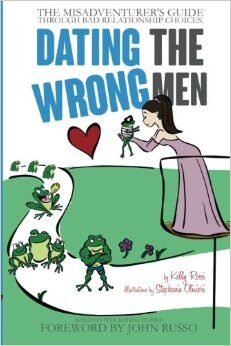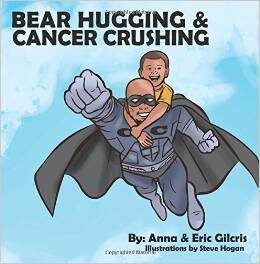AMERICAN ARCADIA
Laura Scalzo
“American Arcadia”.New York City in 1985 was a far cry from the cosmopolitan urban playground it is today. The World Trade Center was just over a decade old, and the city pulsed with Wall Street money and what was left of the anything-goes vibe of the 1970s. At the same time, the gritty, graffiti-strewn streets were falling prey to the growing crack epidemic and its attendant rise in crime, while a mysterious and deadly new disease – AIDS – was beginning to grip the city in its unrelenting fist… Oh, the late great 1980’s what a decade. Laura Scalzo has written a novel for adults entitled ‘American  Arcadia’. This is the story of two women who are friends named Mina and Chry during this decade of the 1980s and learning what friendship and family are all about when dealing with their various jobs, and physical and emotional issues that were new at this time in history. Mina and Chry are looking for answers and searching for them in their ways. One way is through friends, and the other was through music. Laura Scalzo has written a novel of the decade known as the 80s in a scene on page 49 and describing the preparation of cocaine to snort when even rolling up a $100 bill to do this activity. The drug of the rich. She also brings you back to the time of the World Trade Center ‘The Twin Towers’ in all their glory and the cleaning/refurbishing of the Statue of Liberty and redoing of the Torch. I kind of remember the one Rose Parade and the Torch float. New York City is a city of all cultures and Laura showed this in her way. She wrote this story to cover one year through the seasons from one to winter to another to describe how these characters lived, loved, and had fun. You can get to know these characters even in the confusing time they lived while figuring out what is important.
Arcadia’. This is the story of two women who are friends named Mina and Chry during this decade of the 1980s and learning what friendship and family are all about when dealing with their various jobs, and physical and emotional issues that were new at this time in history. Mina and Chry are looking for answers and searching for them in their ways. One way is through friends, and the other was through music. Laura Scalzo has written a novel of the decade known as the 80s in a scene on page 49 and describing the preparation of cocaine to snort when even rolling up a $100 bill to do this activity. The drug of the rich. She also brings you back to the time of the World Trade Center ‘The Twin Towers’ in all their glory and the cleaning/refurbishing of the Statue of Liberty and redoing of the Torch. I kind of remember the one Rose Parade and the Torch float. New York City is a city of all cultures and Laura showed this in her way. She wrote this story to cover one year through the seasons from one to winter to another to describe how these characters lived, loved, and had fun. You can get to know these characters even in the confusing time they lived while figuring out what is important.
New York City, 1985, the scaffolded and torchless Statue of Liberty is under reconstruction, the Twin Towers hum with money, and the club pulse with music. Young Wall Streeter, Mina Berg, and her roommate, Chry Risk, strike up friendships with the volatile Danny Nyro and easygoing Dare Fiore. Mina wants Chry’s family prestige, while Chry only wants to play the bass like Jaco Pastorius. Nyro trades on his father’s notoriety and Dare is keeping secrets. Each of these twenty-somethings attempts to rewrite their origin story as they find themselves knotted in the cross purposes of friendship and love, life and death. Meanwhile, the Sicilian grandmothers on Staten Island are telling tall tales of a fugitive mermaid who lives in the New York Harbor. It’s for you to decide if she’s a monster or a saint. Themes of art, immigration, reproductive rights, AIDS, assault, class, and betrayal simmer beneath a dynamic plot that spans one life-altering year.
2023ISBN: 9781646033614Regal House Publishing LLC250 pages
About the Author
Laura Scalzo is the author of two novels, American Arcadia and The Speed of Light in Air, Water, and Glass. Her shorter work has appeared in various journals including HAD, and Ellipses Zine. Among the many jobs she’s held are Waitress, Office Temp, Copywriter, Eurodollar Broker on the Japan Desk, Bike Company Sales Rep., and Energy Commodities Derivatives Broker. She lives in Washington, DC
A Q&A with Laura Scalzo,
author of American Arcadia
Why did you write this book?
I wanted to write about transcendence. When I tell people this, they ask me what I mean by it, what I think transcendence is, and I say, I’ll tell you, but it’s going to take a minute, it’s going to take a novel’s worth of minutes. So, look, I can’t tell you the short way. Okay, I’ll try: A state of being or existence above and beyond the limits of material experience. The night I saw Jaco Pastorius play, December 21, 1985, actually, on the 22nd since it was way past midnight, I experienced it. I see, I see, I thought he’s ripped open the seams, he’s standing in the doorway telling us there’s more, and I thought, someday, when I figure out how I’ll be able to explain it. This moment, this memory, is as clear and real as if it happened yesterday. And if you meet someone who saw Jaco play they will most likely say something along the same lines.
Somewhere along the way, I became interested in the transcendent vs. the transactional. This comes up a lot when you’re making art because there’s the art and then there’s the selling of the art and whoa, are they extremely odd bedfellows? And just to reach back to talking about Jaco, here you have a genius, a man who recreated an instrument and changed the jazz landscape forever, wandering around New York City in rags, unable to get work. So yeah, there’s a lot to talk about there.
In AMERICAN ARCADIA, Mina works on Wall Street, her working life is one hundred percent transactional and she lives with Chry who is seeking some kind of transcendence she’s vaguely associated with trying to play like Jaco, but also to meet him in real life. It’s part of a conversation I wanted to have about who gets to be a seeker, and I think, by the end, I answer that in a good way because at first glance it feels like maybe only the privileged class has time and money for any kind of seeking.
The characters have interesting names, how did that come about?
I came across the saint story of Chrysanthus, the son of a Roman Senator, and Daria, a Vestal Virgin, and I thought it would be interesting to retell it with the genders reversed. They became Chrysanthi and a Darius.
As for Danny Nyro, he was named after the boy emperor as a start. Descriptors of Emperor Nero include “spoiled,” “angry,” “unhappy”, “sadistic,” and “cruel.” But also, loved art, music, sports; he had architectural vision and oversaw major construction projects. That was kind of a launching pad for my Nyro, Danny Nyro, but he grew from there, very much became his own person. He is psychically broken but his command of his physicality is extraordinary. He wields his body with so much kinetic energy it’s practically weaponized, he’s an excellent cook, he donates blood.
Mina was named as I was playing with narration, I thought the story might be told by a character who was purely an observer, not involved in the plot in any way. As I struggle with this concept, I read DRACULA as a craft lesson—man, does that book get under your skin. That’s where the name Mina came from. Late in my story we learn something more about her name which I’m happy for, she’s not Mina from DRACULA at all. As for her being a non-participating character, that didn’t happen. AMERICAN ARCADIA is her story.
How did you come up with the title?
This book had so many titles! The original was THE NIGHTS AND DAYS OF CHRY AND DARE. There were a million others; I have a moleskine notebook filled with ideas and reasons. The longest running title was WATERLINE. The story has a lot of water imagery and Mina’s inability to swim is a prevailing metaphor. Beneath the waterline is transcendence. Chry is so much a seeker, she’s unafraid to be dropped into the East River. This is the first and only time in Chry’s life she experiences fear in or around a body of water. It’s a warning for the reader, seeking is not free, or easy, or safe. That’s Mina’s view but she’s on the opposite end to the extreme; she won’t go near water.
Chry’s grandmother’s lake house is named Arcadia. I hadn’t put too much thought into it. Just that I wanted to represent the feelings they had or wanted to have about that place as a kind of pastoral perfection. Also, I live in Washington, D.C. The streets running east/west start with letters, then become single syllable names alphabetically, then two syllable, then three syllable. Up near where I am, they run out and there’s a couple of 4 syllable A’s, Aberfoyle, Arcadia. It was just one of those things, sure, that could work. But then, when I started to embrace the immigrant stories, and the feelings about this country as a kind of ideal/idyll it took on more and more meaning. And then after Jan 6 when this beautiful, vibrant, interesting, art-filled city became a ghost town, I was down by the Capitol on my bike, watching them put up all that fencing, and I thought American Arcadia with bitterness. So, the title is both hopeful, lush with possibility, and disappointing irony.
Is AMERICAN ARCADIA autobiographical?
No and yes. The characters are purely fictional. New York City in 1985 is actual. I was a Eurodollar broker that year, just as Mina is and that life, the people, the trading day, the trading floor, was very much like I describe. Also, while there are enough exterior shots of the Twin Towers that I don’t think we’ll forget what Manhattan looked like with them, but there’s hardly any documentation about the interiors of those buildings. I wanted to write about that, life inside the World Trade Center. I wanted it on record; I wanted to remember and for it to be remembered.
Views: 70



